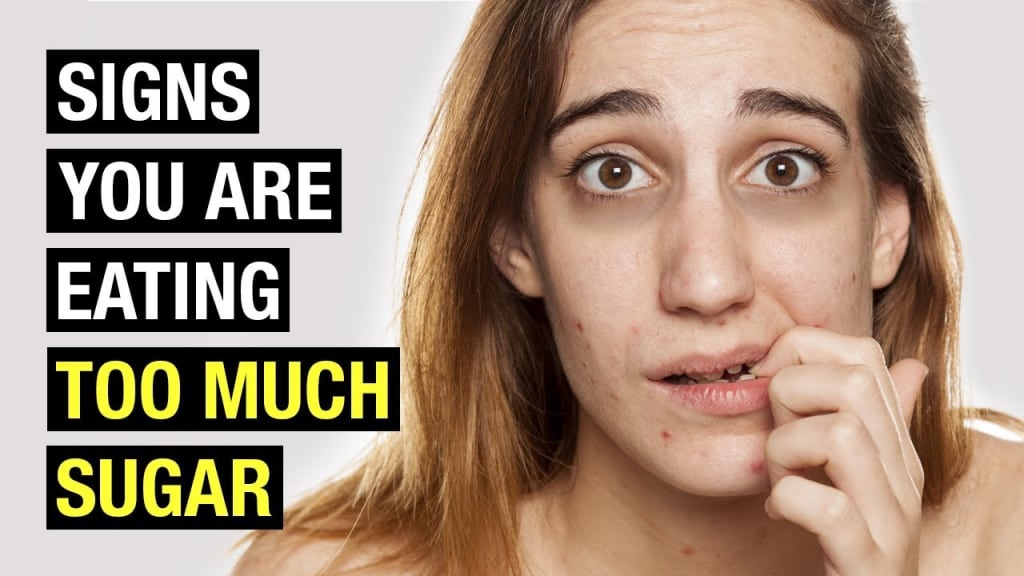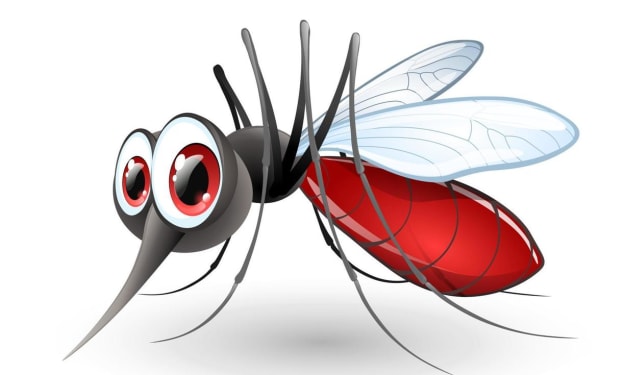15 Signs You're Eating Too Much Sugar
Sugar is sweet and delicious; and it triggers the pleasure sensors in our brains - but eating too much of it, can result in scary health risks. And while it may seem easy to rid yourself of foods with high sugar values - like cake or candy - there are other places where sugar can hide in your diet. It may surprise you to learn that ultra-processed foods are up to five times higher in sugar than processed and unprocessed foods - and they contribute to about ninety percent of our overall sugar intake.

15 Signs You’re Eating TOO MUCH Sugar
Sugar is sweet and delicious; and it triggers the pleasure sensors in our brains - but eating too much of it, can result in scary health risks. And while it may seem easy to rid yourself of foods with high sugar values - like cake or candy - there are other places where sugar can hide in your diet. It may surprise you to learn that ultra-processed foods are up to five times higher in sugar than processed and unprocessed foods - and they contribute to about ninety percent of our overall sugar intake. Clearly, we should all be taking a closer look at the nutrition labels on the foods we eat… You are likely consuming more sugar than you think! Thankfully, you’re body has ways of letting you know that it’s time to limit your sugar intake. Here are the signs you’re eating too much sugar!
Number One - Craving Sugar Scientists can’t seem to agree whether or not to call sugar cravings an addiction. However, we do know that consuming sugar releases dopamine in the brain - which is the feel-good chemical that makes us happy. Research has shown that sugar makes significant changes to your dopamine receptors - which eventually leads to higher tolerance, and results in an increased need of sugar consumption - in order to get an effect. Don’t get me wrong, it is perfectly normal to crave some sugar every once in a while, but if you need to have your sweets every single day, you’re probably consuming too much sugar - causing your brain to want even more.
Number Two - Food Doesn’t Taste As Good If you start to notice that food doesn’t taste the same way you remember it tasting, it could be a sign that you’re eating too much sugar. Eating sugar all the time, results in your taste buds changing - to acquire the sweet taste you crave. Excess sugar dulls your palate and dilutes your sense of taste. As a result, even foods that should taste sweet, don’t seem to cut it anymore.
Number Three - Low Energy Efficient energy production throughout the body, isn’t attainable without proper glucose levels. It’s important to keep your blood sugar levels well balanced - instead of going through the steep ‘ups and downs’ that occur if you’re always eating sugary snacks. When you consume sugar, your pancreas releases insulin - in order to aid in the transfer of glucose to the cells - which can release a burst of energy. But once you use it up, you may experience a dip in your energy levels. Thus, the more sugar you consume, the more extreme the sugar dip will be that follows.
Number Four - Breaking Out Around The Mouth And Chin Some experts believe that severe acne has absolutely nothing to do with an individual’s diet - at least for the majority of people. Other studies however, have been able to link breakouts with the overconsumption of sugary foods. They show that sugar can increase the production of hormones in your body - particularly androgens. Androgens are linked to inflammatory hormonal acne, which typically tends to appear in the area of the jawline and mouth. If you’re struggling with breakouts in that area and don’t know why, it may be helpful to remove added sugars from your diet.
Number Five - Premature Aging Sugar can actually accelerate the signs of aging. A diet high in sugar produces compounds in the body that harm collagen and elastin - the proteins that are vital to keep the skin’s youthful appearance. If you are eating a lot of sugar, wrinkles will start to form, and your skin may start sagging - much sooner than it would if you were on a healthier diet.
Number Six - Joint Pain Many studies have shown that sugar increases inflammation in the body. The effects can linger for a while, after you’ve actually consumed sugar - so you likely wouldn’t assume that your diet may be the cause. The inflammation can result in joint pain, swelling, and stiffness. Thus, if you are experiencing any joint problems, you should consider lowering your sugar intake and see if the pain improves.
Number Seven - High Blood Pressure Too much sugar is not good for your heart. While normal blood pressure is 120/80 or lower, a diet high in sugar can push your blood pressure over this threshold. When it comes to hypertension, added sugars in your diet probably matter more than dietary sodium. Fructose in particular, can significantly increase cardiovascular risks by causing metabolic dysfunction. It’s no surprise that the American Heart Association has recommended limiting added sugars in your diet. More specifically, for women, they recommend a maximum of 100 calories a day - or 6 teaspoons of added sugars. As for men, they should be consuming no more than 150 calories - or 9 teaspoons of added sugars - per day. So make sure you choose your snacks wisely.
Number Eight - High Cholesterol There are even more hidden signs of having too much sugar in your diet - such as increased levels of various fats that circulate in your bloodstream. Typically, when people think about foods that raise cholesterol levels, they tend to think of foods that have high percentages of saturated fat. Yes, these foods, along with foods that are high in trans fats, definitely increase bad cholesterol levels. Likewise, a high abundance of sugar can significantly increase bad cholesterol as well. If you’re concerned about your cholesterol levels, in addition to reducing your fat intake, you should also consider cutting out ‘added’ sugars.
Number Nine - Gut Trouble Your diet largely contributes to the balance of good and bad bacteria in your body - especially in your digestive tract. Foods that are high in sugar, feed bad bacteria - which causes them to overpower the good bacteria. An imbalance of these bacteria can affect the function of your gastrointestinal tract - which may cause you to feel sick, or have trouble metabolizing your food efficiently - along with other issues. And while foods high in salt have been shown to cause bloating, foods high in sugar can also cause your stomach to bulge. It’s also important to note that if you have a sensitivity to sugars such as fructose (the sugar found in fruit) or lactose (the sugar found in dairy), you may also experience bloating or other common symptoms of irritable bowel syndrome. Frequent stomach trouble should lead you to taking a closer look at your sugar intake as being a probable cause.
Number Ten - Mood Swings Higher amounts of sugar in your body can lead to changes in how your body handles food. Consuming too much sugar in a short period of time leads to a sugar high - and a fast crash. And when you crash, your body has a hard time maintaining its high energy level. If you get frustrated and irritable after your sugar high fades off, you are likely consuming too much to begin with. Excess sugar in your diet can also make anxiety disorders worse. Therefore, if you suffer from anxiety or are easily stressed, you should watch your sugar intake.
Number Eleven - Cavities When you were a child, your dentist likely talked to you about cavities. He or she probably told you to stay away from sugary drinks and foods to avoid getting them - something that many adults need to be reminded of as well. Sugar that sits on your teeth, feeds plaque bacteria that already live there and produce acid - which wears away at your tooth enamel - leading to cavities. What’s even worse is consuming combinations of sugar and acid, which usually come from sports drinks or sodas. The longer and more often you snack on high sugar foods or beverages, the higher your risk of getting cavities. It’s best to limit your sugar intake - to avoid any painful visits to your dentist.
Number Twelve - Weight Gain A diet that consists of snacks and beverages that are high in sugar can easily result in weight gain. But sugar isn’t always as obvious as you think it may be… If you’ve been gaining weight and can’t figure out why, you may want to pay closer attention to food labels. Many foods contain added sugars that you may never have even suspected were there. These added sugars cause you to unknowingly consume a significant number of empty calories. For example, one serving of canned soup may be dangerously close to the total recommended sugar intake for the day. It’s important to educate yourself about finding added sugars on food labels; and keeping track of how much you’re eating.
Number Thirteen - Sleeping Problems Eating a snack or consuming a beverage with a high amount of sugar before bedtime, can make it harder to fall sleep or stay asleep throughout the night. Since sugar provides a short burst of energy for the body, it makes going to bed harder - when you should really be calming down and preparing for sleep. On the other hand, it may have the opposite effect shortly thereafter. That’s because sugar triggers the release of serotonin - a neurotransmitter that makes you feel relaxed. But even after nodding off, you still won’t have the satisfaction of a good night’s rest. You won’t wake up feeling as good, due to the dip in your sugar levels during the night. It’s best to stop eating entirely at least two hours before going to bed - especially foods high in sugar. This way, any sugar you have consumed has enough time to make its way through your system. You will then be able to relax - and your body will have an easier time getting into “sleep” mode.
Number Fourteen - Workout Crash Fitness experts will tell you that it’s critical to properly fuel your body. And if exercising has become harder for you, a high-sugar diet could be the culprit. Eating sugary foods before a workout can result in feeling fatigued and miserable afterward. Since too many simple sugars cause a quick spike in blood sugar, followed by a rapid drop – it leaves you feeling exhausted halfway through your workout. Limiting your consumption of sugar will cause you to see a major difference in your workouts and your strength.
Number Fifteen - Weakened Immune System Approximately seventy percent of your immune system is located in your gut, and it’s supported by beneficial gut bacteria. Therefore, keeping a healthy balance of good bacteria is super important. As I mentioned earlier, high sugar diets only feed the bad bacteria - which consequently affects how well the immune system is able to function. If you tend to get sick often, it may be time to limit your sugar intake.
Now, sugar isn’t something that should be avoided at all costs… However, limiting the consumption of ADDED SUGARS not only does the body good, it also helps you save calories for the foods that actually fill you up and make you feel better. So learn how to recognize the signs of eating too much sugar, and then figure out how you can cut back. What do you think? Have you noticed your body giving you any of these clues? Are you eating too much sugar? Share your thoughts and comments below!






Comments
There are no comments for this story
Be the first to respond and start the conversation.